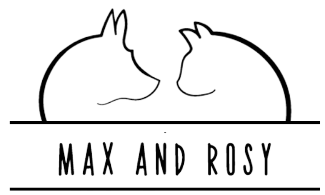
Top Grain-Rich Foods for Dogs: Oats, Brown Rice, Quinoa, and More
When it comes to providing a balanced diet for our furry friends, incorporating grains can be a healthy part of their nutrition. While some dogs thrive on grain-free diets, others benefit from the inclusion of whole grains, which offer vitamins, minerals, and essential fiber. However, not all grains are created equal in terms of benefits for your dog. In this blog, we’ll explore some of the best grains to include in your dog's diet, as well as which ones to avoid.
1. The Benefits of Whole Grains for Dogs
Whole grains are packed with nutrients that can be beneficial for your dog, including:
- Fiber: Helps to regulate digestion and can aid in managing weight.
- Protein: Provides essential amino acids and supports muscle growth and repair.
- Vitamins: B vitamins contribute to a healthy metabolism, skin, and coat.
- Minerals: Such as magnesium, selenium, and iron, which support a range of bodily functions from bone health to immune response.
2. Best Whole Grains for Dogs
Here are some of the best grains to consider adding to your dog's diet, provided they have no specific allergies or health concerns that require a grain-free diet.
Oats
Oats are a fantastic source of soluble fiber, which is gentle on your dog's digestive system. They are also rich in vitamins and minerals like zinc and iron, which help support healthy skin and immune systems. Oats can be served cooked and plain, without any added sugar or flavors.
Brown Rice
Brown rice is a nutritious whole grain that provides dogs with essential B vitamins and minerals. It is especially good for providing energy through complex carbohydrates. Always cook brown rice thoroughly to ensure it's easy for your dog to digest.
Quinoa
Often referred to as a "superfood," quinoa is actually a seed but is prepared and eaten similarly to grains. It is high in protein and all nine essential amino acids, making it a great choice for dogs. Ensure it is well-cooked and served plain.
Barley
Barley is another excellent grain choice for dogs, offering dietary fiber, selenium, and copper. It can help maintain a healthy weight and support heart health. Like other grains, it should be cooked thoroughly before serving.
3. Other Beneficial Grains
- Millet: This gluten-free grain is packed with antioxidants and magnesium, promoting heart and kidney health.
- Sorghum: Known for its high nutritional value and antioxidant properties, sorghum is also gluten-free and a good source of fiber and protein.
4. Grains to Avoid
While many grains are beneficial for dogs, there are some that should generally be avoided:
Wheat
For dogs with sensitivities or allergies, wheat can be problematic, leading to digestive and skin issues. It is one of the more common allergens in dogs.
Corn
Although not harmful in moderation, corn is often used as a filler in many dog foods and provides little nutritional value. It can also be hard on the digestive systems of some dogs.
Soy
Like wheat, soy is another common allergen for dogs. It can cause gastrointestinal upset and other allergic reactions in sensitive dogs.
Conclusion
Integrating grains into your dog's diet can provide them with numerous health benefits, but it's important to choose the right ones. Stick with wholesome, cooked grains like oats, brown rice, and quinoa, and avoid those that might cause allergies or digestive issues. Always consult your veterinarian before making significant changes to your dog’s diet, especially if they have existing health conditions or food sensitivities. By choosing the right grains, you can help ensure your dog stays happy, healthy, and well-nourished.
